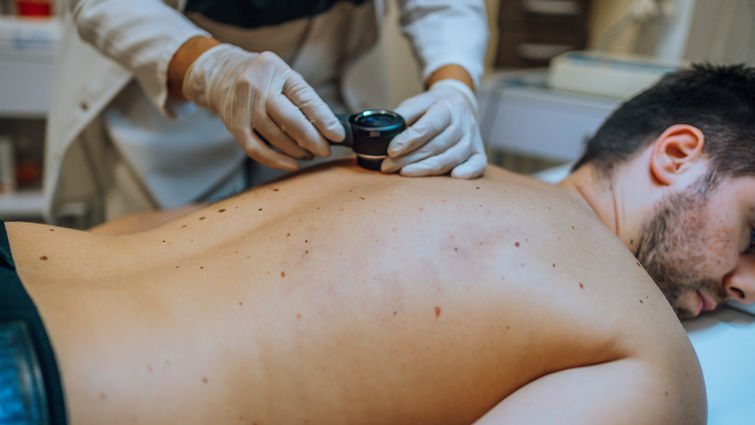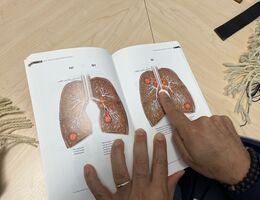

While skin cancer can occur in anyone, certain individuals are at a higher risk due to various factors according to Conroy Chow, MD, dermatologist at Loma Linda University Health. Skin cancer awareness plays a crucial role in prevention and early detection, and regular skin checks are essential for those at risk.
Understanding Skin Cancer
Skin cancer develops when abnormal cells in the skin grow uncontrollably. The primary cause of skin cancer is exposure to ultraviolet (UV) radiation from the sun or artificial sources such as tanning beds. The three major types of skin cancer are:
Basal Cell Carcinoma (BCC): The most common form of skin cancer, BCC usually appears on sun-exposed areas like the face, neck, and hands. It is generally slow-growing and rarely spreads to other parts of the body.
Squamous Cell Carcinoma (SCC): SCC also commonly occurs in sun-exposed areas and can spread to other parts of the body if left untreated. It tends to grow more rapidly than BCC.
Melanoma: Although less common than BCC and SCC, melanoma is the most dangerous form of skin cancer. It can develop from existing moles or appear as new dark spots. If not detected early, melanoma can spread quickly to other organs and be life-threatening.
Thinking alphabetically is a simple way to remember the characteristics of melanoma. ABCDE stands for asymmetry, border, color, diameter, and evolving.
“Typically, I recommend patients get a spot examined if it is continually changing, not healing over weeks to months, causing pain, or bleeding,” Chow said.
Risk Factors
While anyone can develop skin cancer, certain factors can increase the risk.
- Fair skin: People with lighter skin, hair, and eyes have less melanin, which provides natural protection against UV radiation.
- Excessive sun exposure: Spending prolonged periods in the sun, especially without adequate protection, increases the risk of skin cancer.
- History of sunburns: A history of severe sunburns, particularly during childhood, raises the risk of developing skin cancer later in life.
- Family history: Having close relatives with a history of skin cancer increases one's susceptibility.
- Personal history: Individuals who have previously had skin cancer are at a higher risk of developing it again.
- Weakened immune system: Certain medical conditions or medications that suppress the immune system can make a person more vulnerable to skin cancer.
“For patients who have had significant sun exposure, a history of skin cancer, or spots or lesions that are changing, we recommend a full-body head-to-toe skin exam every few to several months,” Chow said. “When we do a skin check, we look for any suspicious lesions and want input from our patients about any lesions that are concerning to them.”
Regular skin checks conducted by a dermatologist or healthcare professional can help detect skin cancer at its earliest stages when it is most treatable. Regular skin checks increase the likelihood of identifying suspicious growths or lesions early on. Timely detection significantly improves the chances of successful treatment and reduces
“Fortunately, most skin cancers are easily treatable if caught early,” Chow said. “They usually do not cause life-threatening issues unless they are neglected and diagnosed at later stages.”
Staying safe this summer
Even on cloudy days or during colder seasons, UV rays can still penetrate through clouds and cause damage. Incorporating UV safety measures into daily routines can significantly reduce the risk of skin cancer.
- Be mindful of reflection: UV rays can bounce off surfaces like water, sand, snow, and concrete, leading to increased exposure.
- Avoid tanning beds
- Protect children: Children's delicate skin is especially vulnerable to the damaging effects of UV radiation. Keep infants under six months of age out of direct sunlight and dress them in lightweight, protective clothing. For older children, apply sunscreen regularly and encourage sun-safe habits from an early age.
- Sunscreen: Chow recommends applying an SPF of at least 30.
Common UV safety myths debunked – Read more here.
Loma Linda University Health has specialists who can help you decipher the clues your body may or may not be revealing and join you on your journey back to health. Partner with a healthcare provider today to help answer your questions. To learn more, visit the skin cancer webpage or call 800-782-2623.


